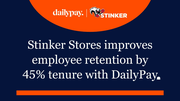Article
Talking With: Needle President Scott Pulsipher on mobilizing brand advocates
One of a brand's best marketing asset is the loyal fan. That's why it's critical to mobilize such advocates to drive revenue, build the consumer base and boost loyalty as well.

March 11, 2016 by Judy Mottl — Editor, RetailCustomerExperience.com & DigitalSignageToday.com
Scott Pulsipher, the former general manager of Amazon Webstore and now Needle president, believes retailers aren't taking full advantage of a valuable marketing strategy — the brand advocate.
A new Needle surveyreveals just one in four brands are tapping the valuable marketing resource. One reason for the lack of advocacy strategy may be that mobilizing the loyal shopper and customer takes a bit of work. Needle has created a technology platform aimed at easing that workload and let retailers leverage passionate fans to drive a bigger consumer base as well as revenue.
Retail Customer Experience talked with Pulsipher on what retailers need to do when it comes to mobilizing advocates, and get his insight on best strategy.
RCE: The idea of empowering retail advocates appears to be an advanced approach in customer relationship management. Yet CRM has been around for nearly decades and is still not a universal effort in retail. Why not and what’s been the big challenge?
Pulsipher: CRM was initially developed with a B2B context in mind, with a relatively finite volume of customers, and a standard process by which companies marketed to them, acquired them, and served and supported them. But, in many consumer contexts, CRM has real limitations considering things such as the sheer volume of customers, the high variations among the different segments and the number of different interaction types. In retail, it is much more "transactional" than "relationship" driven.
Second, CRM effectiveness is limited because of the disparate systems that are prevalent in so many companies, which have been further complicated by the rapid rise in social platforms and their role in customer service. Having a single view of the customer, and thus the best means, by which to manage the relationship with them remains beyond the reach of reality for many companies, especially retailers who still often have a different system for each channel.
Regarding advocacy, it should be viewed beyond or outside of the scope of CRM rather than as an advanced approach to CRM. Advocacy is more providing consumers access to trusted, credible, unbiased sources of guidance, information, and support. Advocacy provides the peer-to-peer connection that we, as individuals, have naturally sought in making key decisions. Advocates don’t try to "manage" the customer, they are simply helping with what the customer needs in that moment, somewhat unconstrained by the policies and priorities of the organization, primarily motivated by the simple desire to help. This personal and authentic touch is something a lot of retailers lose in the translation as they straddle in-store and online commerce.
RCE: Would it be safe to say that today's social media tools are even advancing enabling by advocate customers? How critical is getting advocates to "share" and spread the word when it comes to brand growth?
Pulsipher: There is little doubt social platforms, whether for shopping, support, experiences, politics, etc., are rapidly enabling peer-to-peer connections. It is making it easier for us as humans to find unbiased, trusted and third-party guidance on demand withoutconstraints by the communication channels that a company has provided.
Brands and retailers should go beyond the typical social media platforms to leverage their best customers (advocates) in building their brand awareness, ethos, customer connection and loyalty. It is limiting to think a company could hire enough of the "right" employees to do this all on its own, because consumers naturally distrust company representatives. Faithful and loyal customers can do wonders in promoting the growth and perception of a brand. Customers are already sharing, so it's more a function of whether the company is going to be part of the process. My advice is recruit, enable, and motivate your best advocates (e.g., influencer marketing, trusted reviews, expert content, peer-to-peer engagement), while also tackling negative information by resolving and directly addressing issues that create them, and spread news about them. It is not a good idea to be silent.
RCE: Where does advocate feedback, good and bad, fit into advancing the brand? Human nature typically leads to more "negative" sharing than sharing good experiences on product ratings and rankings. What can a brand do to foster healthy sharing on both fronts?
Pulsipher: It is true human nature is to share information about overwhelmingly positive or negative experiences, but seldom in the middle. This perspective is also behind the notion of "net promoter score" — i.e., only the highly positive are promoters, and virtually everyone else is a detractor (i.e., quiet non-promoters are detractors).
There are a few ways to foster sharing on both fronts. One is to invite and reward sharing — both positive and negative — to make it a natural part of the relationship with a customer. For example, invite customers to share feedback, and use "now that" rewards when they do — regardless whether it was good, bad or neutral.
Second is to proactively share or re-tweet constructive feedback from a customer, and talk specifically about how you are addressing specific issues raised.
Third, invest in a content crowdsourcing and curation strategy that actively promotes customers to share their content with you, and then re-share it on your website, product pages, support forums and beyond. Humans are prideful, and individuals love it when their information gets propagated across the web.
Lastly, in can be quite useful to identify and market the "influencers" that exist within a brand’s social community, but you have to be careful to avoid the "paid spokesperson" trap, and be relatively fluid as social influencers can rapidly change. Be careful to pick and work with those that are best in line with the brand’s promise, image, and ethos. Let them develop naturally.
RCE: What is a common mistake or misstep retailers make with brand marketing — something you see happening within the retail sector or a misconception you find yourself explaining to retail customers?
Pulsipher: In working with potential clients, we are often met with questions about "how do you control the advocates." This seems to be a function of two concerns: a) whether the advocates of the retailer best represent the brand ethos the company wants to put forth, and/or b) whether the advocates are going to say something that is inconsistent with the brand, or offensive to the customer. This fails to grasp today's reality — that is, individuals have shared, or are sharing more-than-ever, their opinions on everything from their experiences, the products they use, the service they received, the price they paid, etc. This authentic, honest interaction is what we crave, and is fundamentally why we as consumers, distrust the marketing information and the service associates from the company that we actually transact with. So, it is an interesting paradox in that consumers trust peers, and distrust companies, and yet companies in turn, distrust their advocates, or anyone who is not an employee. But, the loyalty from advocates is far superior than employees, because it was earned through great individual customer experiences, and not through compensation. Brands and retailers need to embrace their advocates — the best customers — that love your company, and are the best evidence of what most would want their brand to represent.
 ChatGPT
ChatGPT Grok
Grok Perplexity
Perplexity Claude
Claude




